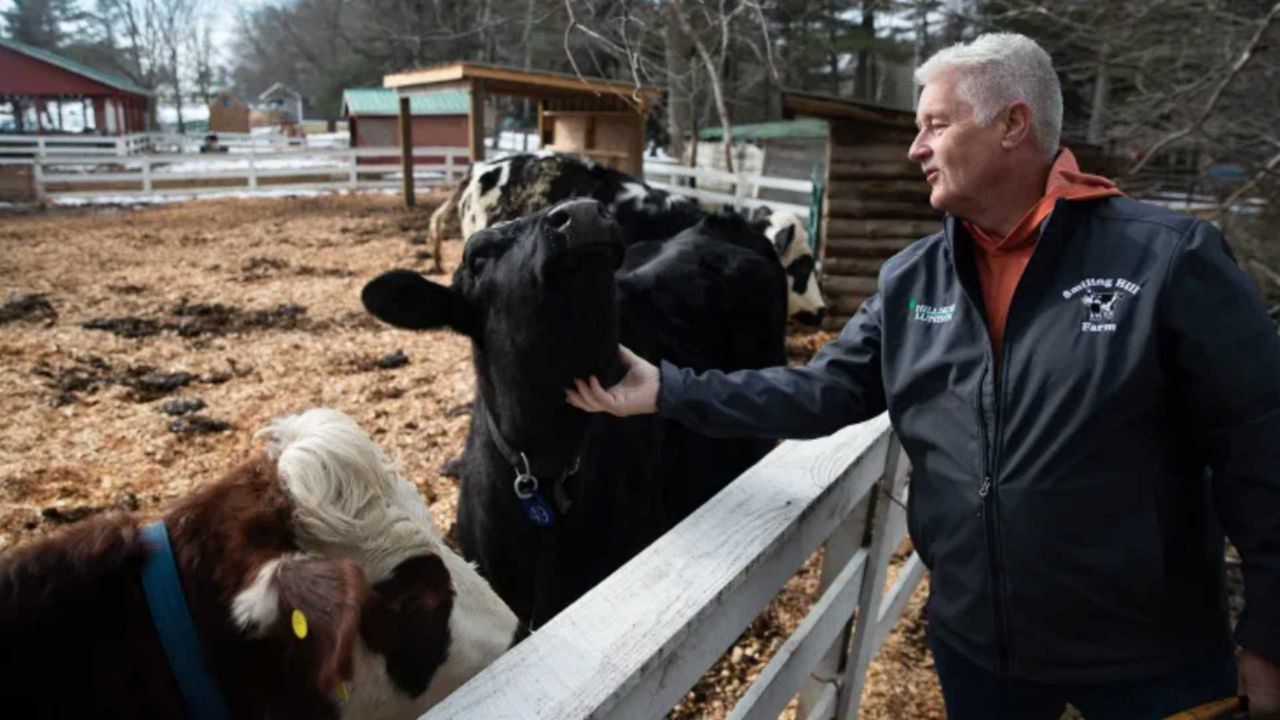The Maine Turnpike Authority has provided more details about what portions of Smiling Hill Farm it needs to build the proposed Gorham Connector along its preferred route, but the Knight family, which has owned the land since 1720, still doesn't want to sell.
Meanwhile, opponents of the plan to build a four-lane toll road from Maine Turnpike Exit 45 in South Portland to the Gorham Bypass at Route 114 in Gorham have launched a petition drive and Facebook group to fight the proposal, which will be the focus of a public meeting, the first of several, in Gorham on Monday.
The authority needs 47.3 acres or nearly 10% of the 500-acre farm on County Road in Westbrook, said Peter Mills, executive director of the authority. That includes a 32.5-acre strip west of the farm and lumber company complex, which is on the north side of County Road, and 14.4 acres on the south side of County Road.
In the planning stages since 2007, the preferred route was announced in February after the authority studied various alternatives as directed in the 2017 bill that authorized construction of a connector. The legislation was endorsed by elected officials in South Portland, Scarborough, Westbrook and Gorham, the authority says. The goal was to address traffic congestion resulting from existing and planned residential and commercial development in communities west of Portland.
"We went to the (Knight) family four or five years ago and said 'We don't know how to get around you,' " Mills said Wednesday. "We don't want to compromise the farm in any way. This route is the least invasive. The alternative is we could walk away and leave it to the towns to widen the roads."
Monday's meeting will be held in the Shaw Gym at the Gorham Municipal Center, 75 South St. It will start with an open house from 4:30-6 p.m., when attendees can view displays and ask questions about the route, funding, environmental impacts and other topics. A public presentation and discussion will begin at 6 p.m. and will be shared online.
The connector is expected to cost more than $200 million – published estimates run as high as $240 million – and be funded by toll revenue, not taxes, Mills said. The toll rate for the connector has yet to be determined, but the project won’t increase tolls on the turnpike, he said.
The 5-mile spur would have interchanges at Running Hill and County roads. Construction could start as early as 2026 and be completed by 2030, but the project still needs federal and state environmental permits.
Mills said the authority could take the farm property by eminent domain, but that's happened rarely in the 12 years he's been executive director.
Mills noted that the Knight family purchased the 14.8 acres south of County Road, which he called the Larson property, several years ago and that it previously "was never part of Smiling Hill Farm." The Knight family disputes this.
"The Larson parcel was an original piece of Smiling Hill Farm," said Warren Knight, one of six siblings involved in the farm. "It was given to a son in the 1700s, and through subsequent generational marriages the land left the family. Smiling Hill Farm has been leasing a portion of the property since the 1960s and was able to purchase it in 2018 after Elmer Larson died."
Knight said the turnpike authority hasn't said how much it would pay for the farm property, and it wouldn't matter.
"Smiling Hill Farm has consistently informed the MTA that Smiling Hill Farm is not interested in becoming any smaller and that no land is for sale," he said. "We're all in. Our future existence is at stake."
Moreover, Knight said, the connector would separate the farm from land that would be isolated west of the highway.
"You can't take 22% of our land assets and not have a negative impact," he said.
A 'BINARY CHOICE'
The Gorham Connector presents a "binary choice" to residents of the Portland area and beyond, Knight said.
"We're telling people they have a choice," he said. "You get to have a four-lane highway or you get to have a farm that's been there for over 300 years."Andy Schmidt is one person who favors the farm over the connector. He started a Facebook group called Stop the Gorham Divider to rally opposition to the proposal.
Schmidt and other opponents believe the connector is an outdated proposal that ultimately will worsen regional traffic congestion that would be better addressed by promoting greater housing density and investing in public transportation.
"It's going to cost way too much," said Schmidt, who lives in Portland. "Projects like this ensure more farms get turned into suburbs and create demand for more highways. With a tiny portion of that money, you could make the bus free and more frequent."
Sadie Donnell, of Gorham, is involved in a second group, Mainers for Smarter Transportation, which has started an online petition drive to "Stop the Maine Turnpike Expansion." She is blind and rides a Regional Transportation Program bus to work near the Portland International Jetport each day because the Metro bus service isn't frequent or accessible enough.
She believes a more equitable solution to traffic congestion would be to spend the connector money on improving public transportation and the roads as they are, rather than addressing the needs of individual drivers in a way that would "scar" the landscape in irreversible ways.
"I'm a pretty hard no (on the connector) because there are definitely better options," Donnell said.
To get more news and information from this partner, subscribe here.




